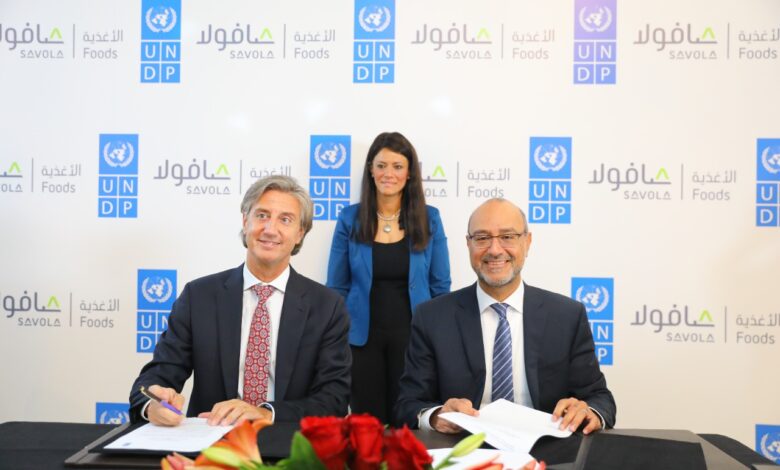August 24, 2022

The United Nations Development Program (UNDP) in Egypt and Savola Foods, the leading company in wheat-based products across the region, signed a Memorandum of Understanding aiming to improve food security and climate change adaptation.
The signing ceremony was attended by Minister of International Cooperation, Rania al-Mashat.
This comes under state efforts to advance Egypt’s Vision 2030 and fulfill the UN’s Sustainable Development Goals (SDG).
Under the agreement, the UNDP and Savola Foods will work together to apply SDG Impact Standards and Impact Measurement and Management practices.
Creating climate resistant crops
Savola’s Foods Innovations Center will experiment in utilizing climate-resilient crops like millet, quinoa and sorghum as part of wheat-based products – under the government’s agricultural development strategy aimed at adapting and fighting the effects of climate change.
It will also cover areas of mutual support, with the Regional Innovations Center of Savola Foods and the UNDP’s Accelerator Lab in Egypt joining forces to further innovative strategies in partnership with national and international development agencies to improve sustainable practices within the agricultural sectors and food sector at large.
“With food security quickly becoming a global challenge, international partnerships are needed to curb the impact of successive global crises, ensuring self-sufficiency and resilience,” Minister Mashat said.
“Today, the MoU signed between the UNDP and Egypt’s Savola Foods aims to accelerate our progress towards the Sustainable Development Goals, with a focus on food security through cooperation.”
“This partnership also reflects the importance of private sector engagement in enhancing agricultural practices, particularly in light of climate change. The Government of Egypt is committed to working with our development partners and private sector in ensuring resilience and adaptation through innovative solutions, despite current global challenges,” she added.
Egypt at particular risk of climate change
“Egypt’s historical breadbasket, the Nile Delta has been classified as one of the world’s top three hotspots in terms of vulnerability to climate change,” said the UNDP’s Resident Representative in Egypt Alessandro Fracassetti.
He credited the private sector as having a key role to play in the state achieving SDGs, through enhancing food security and mitigating the impact of climate change.
“We hope that our partnership with Savola Foods will inspire other key players to invest in positive environmental and community impact and long-term resilience, and to look at all their business processes through the lens of the universal agenda 2030. It very makes business sense, now and in the long run”, he explained.
“Adapting the agricultural sector to climate change is an especially high priority, and the UNDP has been working closely with the government, experts and farmers to achieve this adaptation.”
Savola Foods confronts the long-term issues
The CEO of Savola Foods, Sameh Hassan, said that his company with coordinate with the UNDP to combat potential issues in the long-term brought on by declining wheat yields, which he noted are predicted to fall by nine perfect come 2030.
“Through the partnership, we will build a strategic approach to advise on a roadmap, upon which several activities are expected to kick off. On our end, Savola Foods will allocate key part of its R&D efforts & know-how whilst giving top priority to consumer insights in order to provide the end-users with a wide range of appealing & sustainable food commodities”, he added.
Hassan added that his company is Egypt’s biggest pasta exporter to Africa and the Arab world, and amongst the biggest pasta manufacturers in the Middle East – with a market share exceeding 35 percent in Egypt.
https://egyptindependent.com/undp-and-savola-foods-sign-mou-to-mitigate-impact-of-climate-change-in-egypt/
